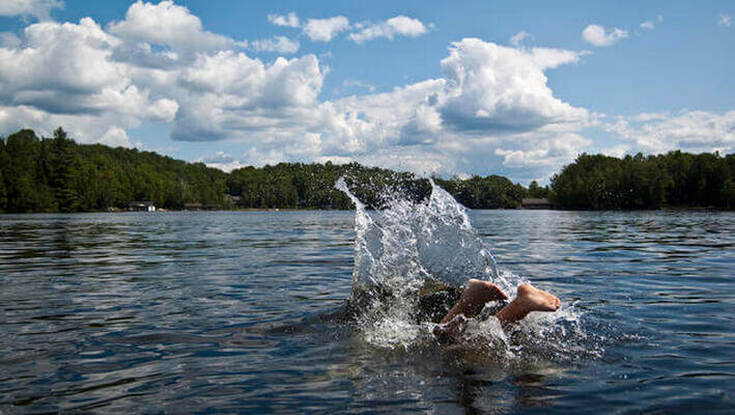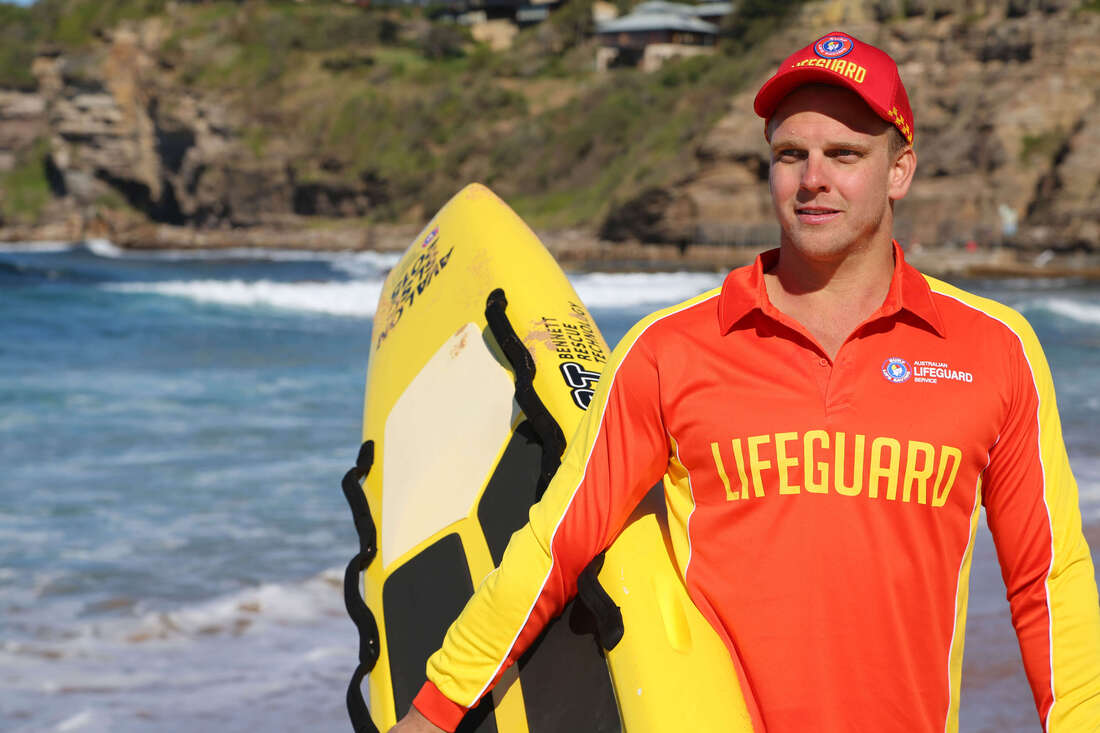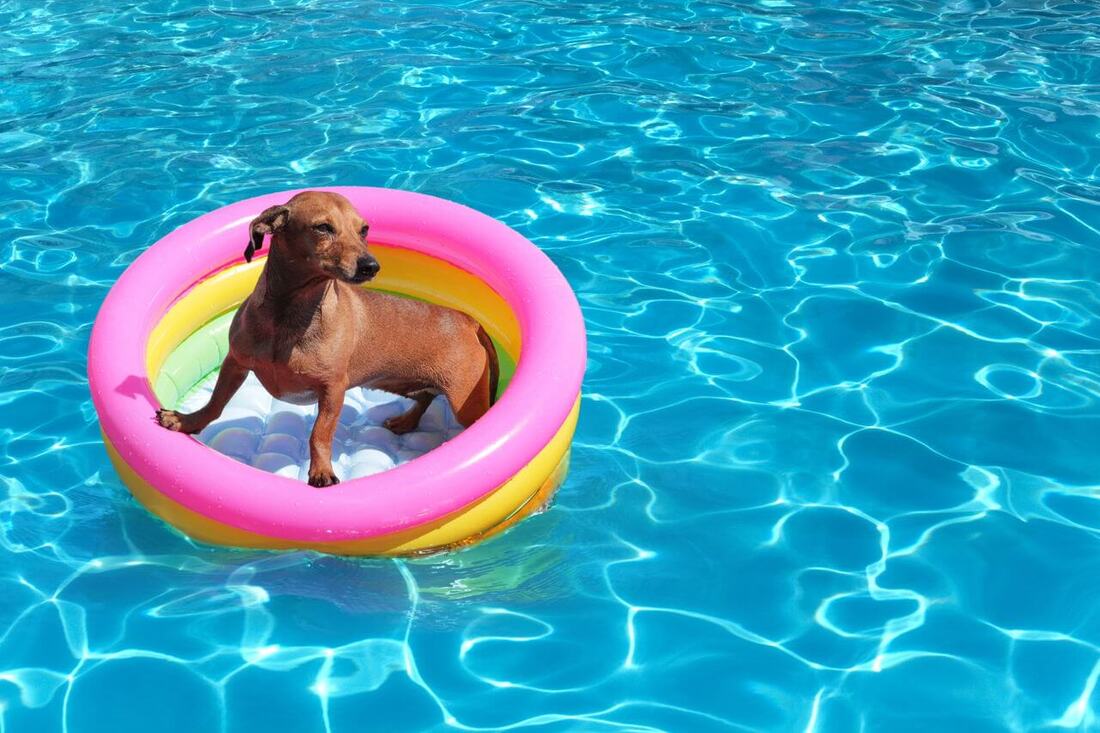If you live near a body of open water, you could have great fun lake swimming or using an inflatable water park. Here's how.
Where are you spending your summer days? If you're lounging at the pool, you're missing out on all that the beach has to offer. Swimming helps you stay cool, but lakes offer much more than swimming opportunities.
From rope swings to fishing and boating, lake life is the way to go. Whether you rent a lake house for a week with family or you spend the day at the lake to enjoy the sun, make sure you understand the difference between lake swimming and pool swimming.
Here are some helpful lake swimming tips so you can rest easy next time you're heading to the beach.
Increasing Depth
When you swim in a lake, the depth increases more gradually than in your neighborhood swimming pool. Often community pools have a drop-off point, where the depth goes from around three feet to six or seven feet. It's not a true drop-off, but it's a very steep incline.
Most of the time in a swimming lake, your depth increases by a few inches at a time. Sometimes there are steeper drop-offs, but often you don't know where they are.
Be careful if it's your first time swimming in a lake because you don't know where the dangerous inclines are. You don't want any surprises, even if you're a strong swimmer.
Lifeguards? What Lifeguards?
If you're looking for "public swimming lakes near me," you may come across one that doesn't have any lifeguards. While some public lake access points provide lifeguards for the beaches, chances are you'll be swimming without supervision. That means you'll have to be extra careful because you'll be on your own if something goes wrong.
Make sure you keep an eye on the buoys if there are any. These orange and white floating cylinders will let you know where the end of the swimming area is, and warn you that it's more dangerous to swim farther out.
For stronger swimmers, it's still a good idea to swim with a buddy. If you're going out past the buoy, make sure that you have a friend to swim with so that you can take care of each other if something goes wrong.
In large freshwater lakes like the Great Lakes, there are tides and waves like in the ocean. Although these lakes and beaches look friendly, they can have an undertow just when you're swimming like in the sea. Make sure you know how to get out of an undertow so that you're prepared if it happens to you.
Where are you spending your summer days? If you're lounging at the pool, you're missing out on all that the beach has to offer. Swimming helps you stay cool, but lakes offer much more than swimming opportunities.
From rope swings to fishing and boating, lake life is the way to go. Whether you rent a lake house for a week with family or you spend the day at the lake to enjoy the sun, make sure you understand the difference between lake swimming and pool swimming.
Here are some helpful lake swimming tips so you can rest easy next time you're heading to the beach.
Increasing Depth
When you swim in a lake, the depth increases more gradually than in your neighborhood swimming pool. Often community pools have a drop-off point, where the depth goes from around three feet to six or seven feet. It's not a true drop-off, but it's a very steep incline.
Most of the time in a swimming lake, your depth increases by a few inches at a time. Sometimes there are steeper drop-offs, but often you don't know where they are.
Be careful if it's your first time swimming in a lake because you don't know where the dangerous inclines are. You don't want any surprises, even if you're a strong swimmer.
Lifeguards? What Lifeguards?
If you're looking for "public swimming lakes near me," you may come across one that doesn't have any lifeguards. While some public lake access points provide lifeguards for the beaches, chances are you'll be swimming without supervision. That means you'll have to be extra careful because you'll be on your own if something goes wrong.
Make sure you keep an eye on the buoys if there are any. These orange and white floating cylinders will let you know where the end of the swimming area is, and warn you that it's more dangerous to swim farther out.
For stronger swimmers, it's still a good idea to swim with a buddy. If you're going out past the buoy, make sure that you have a friend to swim with so that you can take care of each other if something goes wrong.
In large freshwater lakes like the Great Lakes, there are tides and waves like in the ocean. Although these lakes and beaches look friendly, they can have an undertow just when you're swimming like in the sea. Make sure you know how to get out of an undertow so that you're prepared if it happens to you.
Lake Swimming: Warm or Cold?
Your pool usually regulates temperature. Whether you keep a solar cover on your backyard pool or it's heated, the difference with a lake is noticeable. When you're searching online for "swimming lakes near me," keep in mind that the temperature will be hard to get used to.
Smaller inland lakes will be a lot warmer than your pool, especially by the end of summer. It will also be cooler out in the middle of the lake where it gets deeper. The temperature gradient is unexpected if you're used to swimming in a pool.
Large freshwater lakes hardly ever warm-up, even late into the summer. Don't expect Lake Michigan or any similar body of water to get warm, even into August. About 76 -78 is the most you can reasonably expect, unlike swimming in the ocean in the Caribbean, where tropical waters get up to 85 or more.
No Chemicals
When your phone tells you about "lakes you can swim in near me," remember that wherever you choose to go won't have any chemicals in the water. That means you're toxin-free, which is great if chlorine and other chemicals bother you.
Social distancing is still important at the lake, even though you're outside. You can do this with water inflatables, as long as you remember to take turns. Being outside and swimming is a great way to spend your summer when you can't do the other inside activities you love.
The absence of chemicals also means that algae, seaweed, and other lake flora and fauna will be present. Minnows like to nibble on your toes in the shallows (it doesn't hurt), and bigger fish live farther out. You may even find leeches, frogs, or water lilies.
These are beautiful, but if you're not prepared for it, you may not have the same appreciation for it that other longtime lake visitors do.
Bigger Playground
While swimming pools offer lots of fun in the way of slides and diving boards, lakes have so much more space than pools to install inflatable islands and floating water park options. From the fun you'll have on The Blob (jump on the end to bounce the other person off into the water) to the water trampolines, lakes make great homes for these types of inflatables.
You can find more about lake inflatables here, including how to anchor and install the inflatables. These will be the best part of your lake trip this summer!
Your pool usually regulates temperature. Whether you keep a solar cover on your backyard pool or it's heated, the difference with a lake is noticeable. When you're searching online for "swimming lakes near me," keep in mind that the temperature will be hard to get used to.
Smaller inland lakes will be a lot warmer than your pool, especially by the end of summer. It will also be cooler out in the middle of the lake where it gets deeper. The temperature gradient is unexpected if you're used to swimming in a pool.
Large freshwater lakes hardly ever warm-up, even late into the summer. Don't expect Lake Michigan or any similar body of water to get warm, even into August. About 76 -78 is the most you can reasonably expect, unlike swimming in the ocean in the Caribbean, where tropical waters get up to 85 or more.
No Chemicals
When your phone tells you about "lakes you can swim in near me," remember that wherever you choose to go won't have any chemicals in the water. That means you're toxin-free, which is great if chlorine and other chemicals bother you.
Social distancing is still important at the lake, even though you're outside. You can do this with water inflatables, as long as you remember to take turns. Being outside and swimming is a great way to spend your summer when you can't do the other inside activities you love.
The absence of chemicals also means that algae, seaweed, and other lake flora and fauna will be present. Minnows like to nibble on your toes in the shallows (it doesn't hurt), and bigger fish live farther out. You may even find leeches, frogs, or water lilies.
These are beautiful, but if you're not prepared for it, you may not have the same appreciation for it that other longtime lake visitors do.
Bigger Playground
While swimming pools offer lots of fun in the way of slides and diving boards, lakes have so much more space than pools to install inflatable islands and floating water park options. From the fun you'll have on The Blob (jump on the end to bounce the other person off into the water) to the water trampolines, lakes make great homes for these types of inflatables.
You can find more about lake inflatables here, including how to anchor and install the inflatables. These will be the best part of your lake trip this summer!
Summer Fun
Spending time lake swimming this summer is the best way to pass the time and relax. Take your drink down to the sand and lounge, or surf the waves. Bounce on the inflatable trampoline, or go fishing.
However, you choose to enjoy the lake swimming this summer, remember that it's different from swimming in a pool. Review the differences above so that you're prepared and you can stay safe while having fun.
For more information about water inflatables, check out the rest of our blog.
Spending time lake swimming this summer is the best way to pass the time and relax. Take your drink down to the sand and lounge, or surf the waves. Bounce on the inflatable trampoline, or go fishing.
However, you choose to enjoy the lake swimming this summer, remember that it's different from swimming in a pool. Review the differences above so that you're prepared and you can stay safe while having fun.
For more information about water inflatables, check out the rest of our blog.



 RSS Feed
RSS Feed